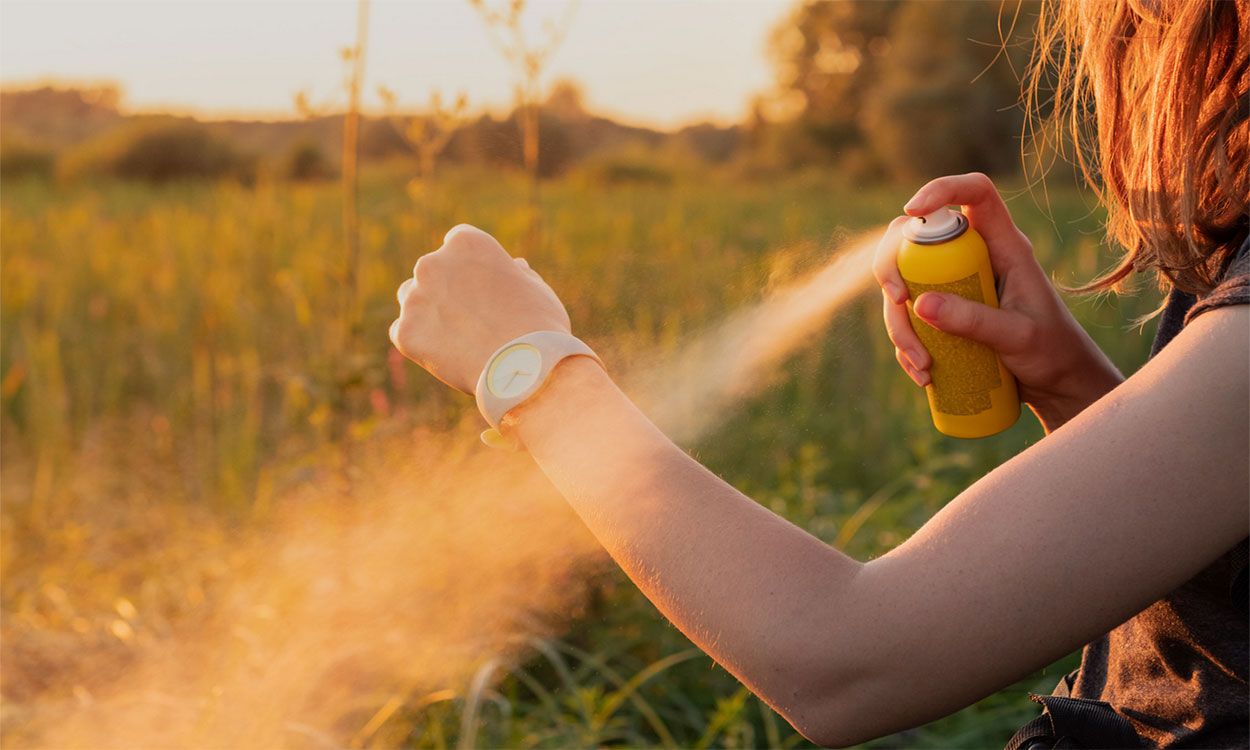Keep yourself off the menu for mosquitoes, midges, ticks and other creepy crawlies when hiking and camping
- Cover up
One really effective way to stop insects being able to access your tasty flesh is by leaving less of it uncovered.
It’s better to choose the best hiking pants that are loose-fitting and breathable, and long sleeved sweat-wicking base layers for walking. Also pick longer hiking socks and closed-toe hiking boots so that your ankles aren’t exposed.
2. Wear a hat or bandana
Don’t forget your head when wrapping up – a hat or bandana can go a long way to stop any bites on your scalp and ears. Choose light colours rather than dark ones, as the latter are more attractive to mosquitos.
3. Use insect repellent
Cover any leftover exposed skin with a good insect repellent, and reapply regularly.
In milder climates, picaridin-based repellents and citronella are both effective at keeping bites to a minimum.
4. Consider location
The weather and your location are also factors to consider. Most biting insects prefer warm, damp weather with no wind. Times of day when you’re likely to be bitten vary. Some species are more active in the day, while others – including the most common breeds of mosquitoes – are more prevalent at dusk. You’re more likely to be bitten when next to stagnant water and in woodland, both of which are breeding grounds for biters.
If your hands swell when hiking, using trekking poles will keep the hands closer to the level of the heart, improving blood return to your heart.








Leave a Comment
Your email address will not be published. Required fields are marked *